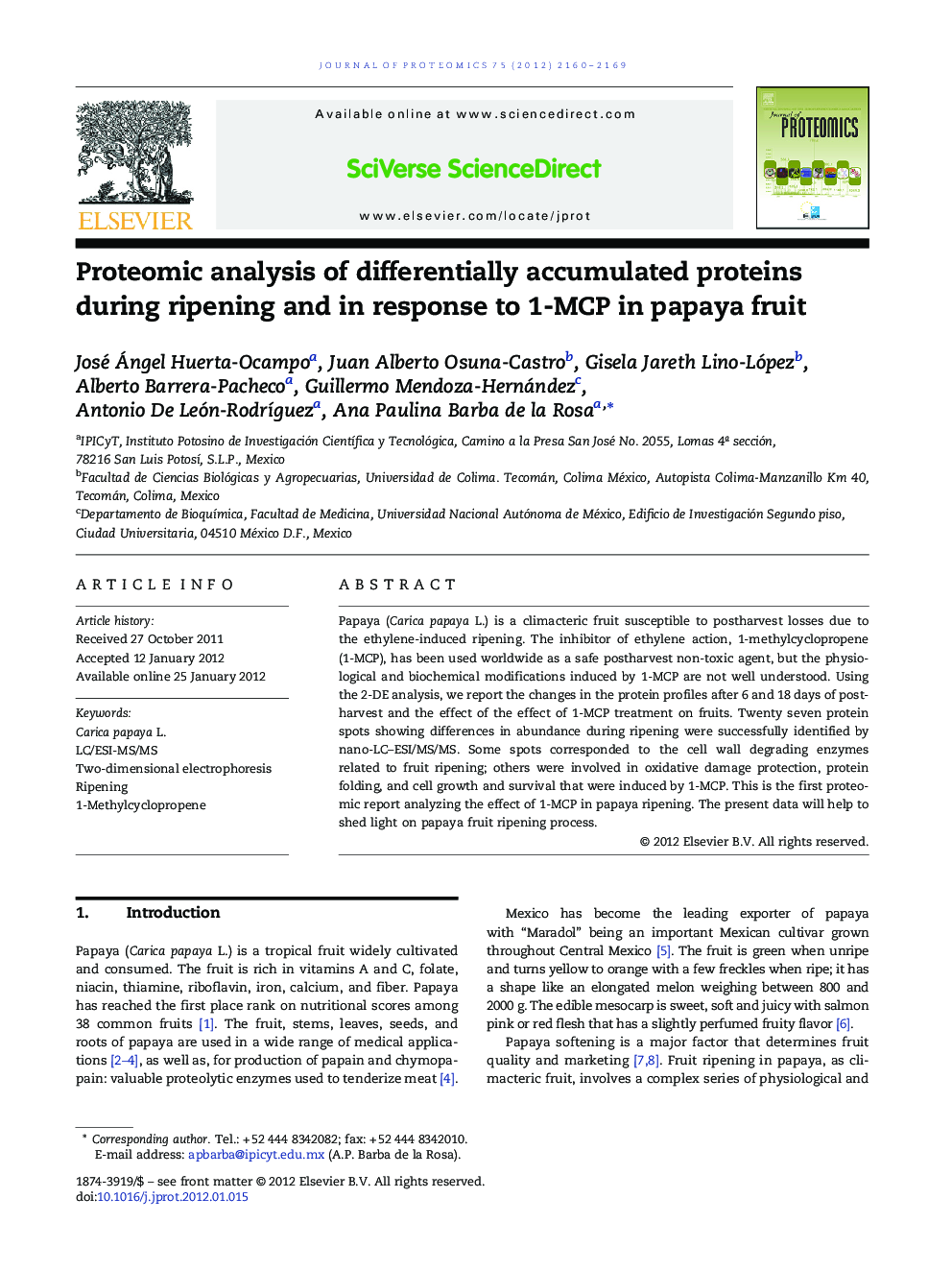| Article ID | Journal | Published Year | Pages | File Type |
|---|---|---|---|---|
| 1225957 | Journal of Proteomics | 2012 | 10 Pages |
Papaya (Carica papaya L.) is a climacteric fruit susceptible to postharvest losses due to the ethylene-induced ripening. The inhibitor of ethylene action, 1-methylcyclopropene (1-MCP), has been used worldwide as a safe postharvest non-toxic agent, but the physiological and biochemical modifications induced by 1-MCP are not well understood. Using the 2-DE analysis, we report the changes in the protein profiles after 6 and 18 days of postharvest and the effect of the effect of 1-MCP treatment on fruits. Twenty seven protein spots showing differences in abundance during ripening were successfully identified by nano-LC–ESI/MS/MS. Some spots corresponded to the cell wall degrading enzymes related to fruit ripening; others were involved in oxidative damage protection, protein folding, and cell growth and survival that were induced by 1-MCP. This is the first proteomic report analyzing the effect of 1-MCP in papaya ripening. The present data will help to shed light on papaya fruit ripening process.
Graphical abstractFigure optionsDownload full-size imageDownload high-quality image (130 K)Download as PowerPoint slideHighlights► We analyzed the papaya pulp proteins by 2-DE and MS. ► New information about the protein expression in response to 1-MCP is reported. ► Increasing information of papaya pulp proteins during ripening will be useful for minimizing postharvest losses. ► Proteomics is a useful tool to investigate the ripening processes.
